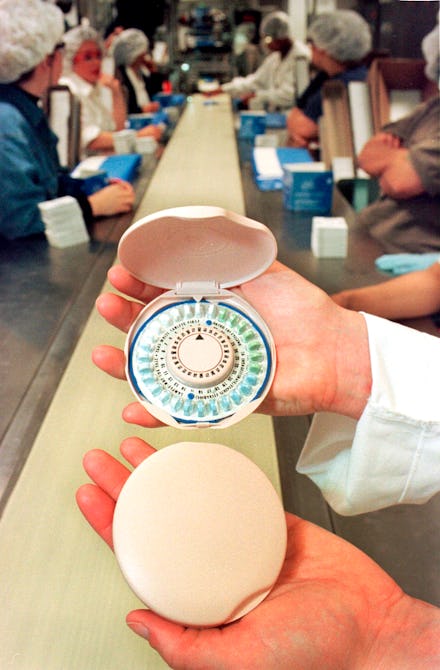There Are Options for Teens Who Want Birth Control Who Don't Have Their Parents' Consent

Listen up, teens: Birth control can be obtained outside your parents' watchful eye. And what's more, it should be, because if mom and dad aren't cool with the idea of their kid having sex, they're not likely to welcome the news that their child is with child.
For anyone who's doing the deed but doesn't feel ready to deal with pregnancy, birth control is heartily advised. And there are many options for getting it on the sly.
Read: What Happens If a Condom Breaks? Here's What You Should Do Following a Condom Snafu
The easiest thing to do is to stop by your local drug store. There, you will find a wide selection of contraception, including condoms, spermicides, sponges, emergency contraception and maybe even female condoms, all available for over-the-counter sale. No one will card you, because there aren't age restrictions on any of these items.
Getting a prescription for hormonal birth control can be harder, though — it's technically free for anyone with health insurance, but if the goal is to keep the pill off your parents' radar, that doesn't matter much. So, you're going to need enough money to cover your monthly pack. You'll also need to have started your period before you can take the pill safely.
Oral birth control isn't the only option, though; answering a question about obtaining contraception without parental consent for the sex ed website, Scarleteen, Joanna Dawson, M.P.H. — a teen health educator at Action for Youth — laid out the various methods. There's the vaginal hormonal ring that lives in the vagina for a month; there's Implanon, a hormonal implant and there are also IUDs. Any of these might be more convenient than the pill, depending on individual circumstances.
Dawson also recommended checking your state's consent laws — 21 states allow minors to consent to "contraceptive services" without getting a parent or guardian involved. She also suggested setting up an appointment with a healthcare provider like Planned Parenthood or the American Sexual Health Association. Their medical professionals can explain the various contraceptive options.
They'll also be able to help determine appropriate fees. Some schools and health care initiatives provide long-acting reversible contraceptives to students free-of-charge — depending on where you live, that might be an option. Even placing a call to a health care provider can help answer these questions, and because doctor-patient confidentiality exists, the conversation won't get back to your parents.
Regardless of whether or not you're using alternate contraceptive methods, condoms are a good idea — just as parents who aren't open to discussing the birth control aren't likely to enjoy the idea of teen pregnancy, they're probably going to frown upon the news that you've contracted a sexually transmitted infection. Condoms are, then, your friend. Use them.